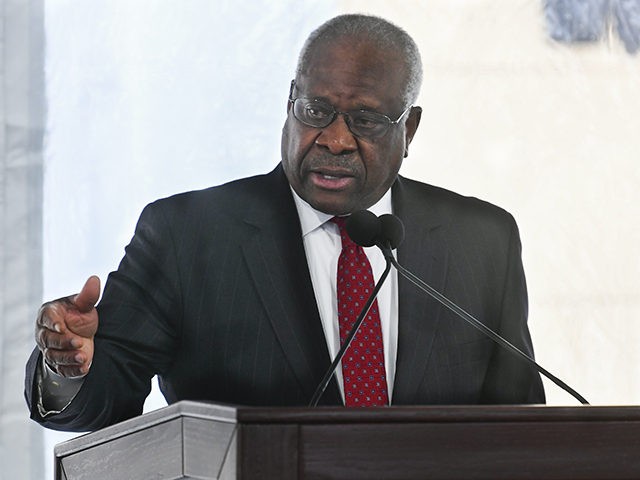The Supreme Court’s decision to preserve President Barack Obama’s illegal Deferred Action for Childhood Arrivals (DACA) amnesty also allows future presidents to bind their successors in illegal policies that can only be undone by the court, says the dissent by three GOP-nominated judges.
“The majority’s holding creates perverse incentives, particularly for outgoing administrations,” said the dissent by Judges Clarence Thomas, Sam Alito, and Neil Gorsuch. They continue:
Under the auspices of today’s decision, administrations can bind their successors by unlawfully adopting significant legal changes through Executive Branch agency memoranda. Even if the agency lacked authority to effectuate the changes, the changes cannot be undone by the same agency in a successor administration unless the successor provides sufficient policy justifications to the satisfaction of this Court.
In other words, the majority erroneously holds that the agency is not only permitted, but required, to continue administering unlawful programs that it inherited from a previous administration.
The 5:4 decision preserved Obama’s DACA by arguing that President Donald Trump’s deputies had not gone through the regulatory hoops needed to formally cancel a program that had provided benefits to roughly 700,000 illegals.
The majority — one GOP and four Democrat-nominated judges — said that Trump could end the DACA program. But if Trump goes through the process, lower-court judges will be able to invent new roadblocks for the court’s four Democrats to approve.
Thomas and the two other GOP-nominated judges slammed the decision as political, saying that five majority judges are acting as politicians instead of judges:
Today’s decision must be recognized for what it is: an effort to avoid a politically controversial but legally correct decision. The Court could have made clear that the solution respondents seek must come from the Legislative Branch. Instead, the majority has decided to prolong DHS’ initial overreach by providing a stopgap measure of its own. In doing so, it has given the green light for future political battles to be fought in this Court rather than where they rightfully belong—the political branches. Such timidity forsakes the Court’s duty to apply the law according to neutral principles, and the ripple effects of the majority’s error will be felt throughout our system of self-government.
The DACA program is clearly illegal, the three judges said:
DHS created DACA during the Obama administration without any statutory authorization and without going through the requisite rulemaking process. As a result, the program was unlawful from its inception. The majority does not even attempt to explain why a court has the authority to scrutinize an agency’s policy reasons for rescinding an unlawful program under the arbitrary and capricious microscope. The decision to countermand an unlawful agency action is clearly reasonable. So long as the agency’s determination of illegality is sound, our review should be at an end.
A majority of the court dismissed claims that DACA should be preserved because Trump acted with “animus” towards Latinos.
One Democrat judge, Sonia Sotomayor, said the program should have been preserved until officials can prove that Trump and his deputies can show they were not motivated by animus towards Latinos. The evidence of illegal “animus” may include Trump’s campaign statements and promise, the judge said:
The impact of the policy decision must be viewed in the context of the President’s public statements on and off the campaign trail. At the motion-to-dismiss stage, I would not so readily dismiss the allegation that an executive decision disproportionately harms the same racial group that the President branded as less desirable mere months earlier.
This would be a valid point, if SCOTUS were actually concerned about consistency. But what do you want to bet that if a Pres. Biden (or Abrams or Harris or…) does the equivalent, SCOTUS would rule the opposite way (or just let a 9th Circuit ruling stand). https://t.co/u86FkZXw5V
— Mark Krikorian (@MarkSKrikorian) June 18, 2020

COMMENTS
Please let us know if you're having issues with commenting.